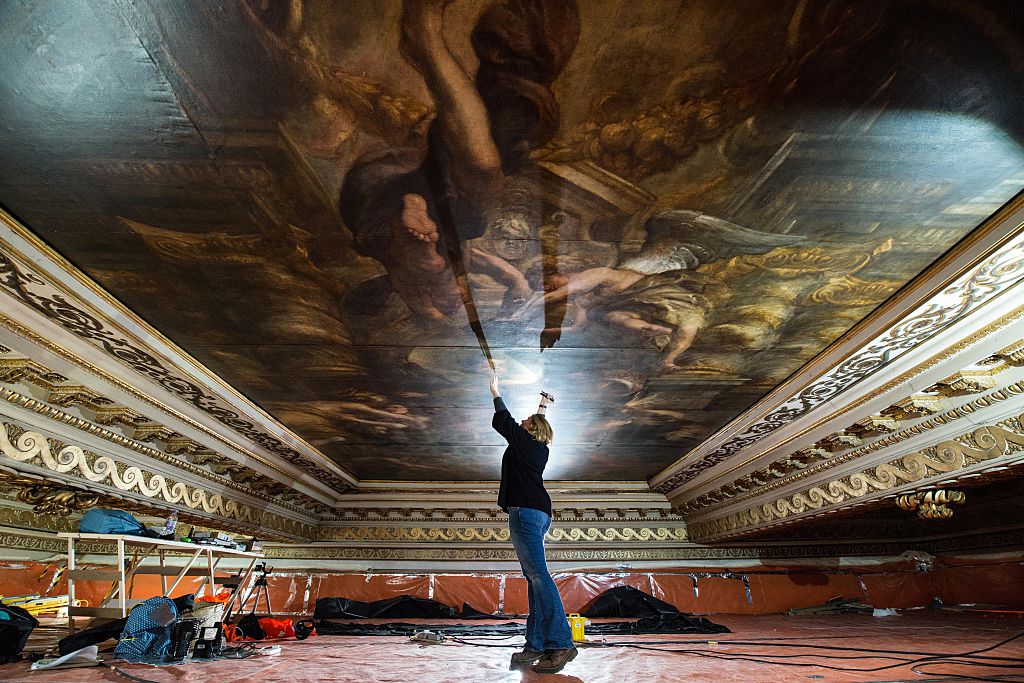4 January 1698: the Palace of Whitehall is destroyed by fire
On this day in 1698, the Palace of Whitehall, one of Europe's most complex and beautiful royal residences, burned down after a basket of linen caught fire


Get the latest financial news, insights and expert analysis from our award-winning MoneyWeek team, to help you understand what really matters when it comes to your finances.
You are now subscribed
Your newsletter sign-up was successful
Want to add more newsletters?

Twice daily
MoneyWeek
Get the latest financial news, insights and expert analysis from our award-winning MoneyWeek team, to help you understand what really matters when it comes to your finances.

Four times a week
Look After My Bills
Sign up to our free money-saving newsletter, filled with the latest news and expert advice to help you find the best tips and deals for managing your bills. Start saving today!
By the late 17th century, the Palace of Whitehall was a mishmash of architectural styles. From Tudor towers to the Palladian Banqueting House designed by Inigo Jones in 1619, it was described as one of the largest, most complex and beautiful palaces in Europe – or the ugliest if you agreed with the French Duc de Saint-Simon.
Disaster struck at four in the afternoon on 4 January 1698, when a basket of linen, left out to dry beside a charcoal fire, set alight. It wasn't the first accident to befall the palace: just seven years earlier, a similar mishap in the Duchess of Portsmouth's lodgings almost claimed the royal residence. But this time, the destruction was all but complete.
Efforts to save the palace were chaotic. Servants ran around frantically trying to save the furnishings but were impeded in their efforts by the courtiers, who had bolted their doors against looters, thus getting in the way of workmen who were desperately trying to blow up the buildings in advance of the encroaching flames. It was all mostly in vain. A marble bust of Charles I by the great Italian sculptor Gian Lorenzo Bernini and a Michelangelo are among the treasures believed lost in the fire.
MoneyWeek
Subscribe to MoneyWeek today and get your first six magazine issues absolutely FREE

Sign up to Money Morning
Don't miss the latest investment and personal finances news, market analysis, plus money-saving tips with our free twice-daily newsletter
Don't miss the latest investment and personal finances news, market analysis, plus money-saving tips with our free twice-daily newsletter
Banqueting House and the beautifully ornate Tudor Holbein Gate survived, although an unsentimental London demolished the gate in 1759 to make way for a road. But some mourned the still smouldering ruins. The reigning William III declared valiantly that "if God would give him leave, he would rebuild them much finer than before". He even fetched Sir Christopher Wren to set to it.
But God wasn't the problem: the Treasury was – in that it was empty. Queen Anne, who followed William in 1702, promised to put aside £100,000 for six years to fund the rebuilding of Whitehall Palace. Her endeavours, too, came to nothing. So the wreckage was swept away, and the politicians later moved in. Perhaps it's not for nothing that the Cabinet Office today sits on the site of the old cockfighting pit.
Get the latest financial news, insights and expert analysis from our award-winning MoneyWeek team, to help you understand what really matters when it comes to your finances.

-
 Should you buy an active ETF?
Should you buy an active ETF?ETFs are often mischaracterised as passive products, but they can be a convenient way to add active management to your portfolio
-
 Power up your pension before 5 April – easy ways to save before the tax year end
Power up your pension before 5 April – easy ways to save before the tax year endWith the end of the tax year looming, pension savers currently have a window to review and maximise what’s going into their retirement funds – we look at how